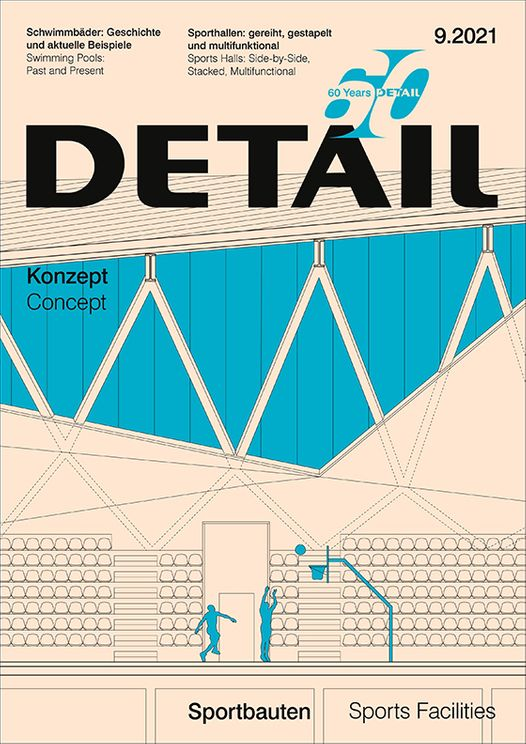Architecture for Sport
Our September issue examines a variety of sport building typologies – such as a converted industrial hall in Viborg, Denmark, which gives street sports a permanent home; and the Brombach sports hall in Lörrach, with its half-submerged spaces and well-lit rooms. Different forms of access as well as flexible use for spaces that might be subdivided are just a few of the common requirements that must be dealt with architecturally. The type of construction and the supporting structure are also decisive, as large halls require large spans. Swimming pools are no less demanding in terms of planning – a topic we take up in our essay highlighting recent impressive examples.
In serving the local community, sport centres need to be well lit and easily accessible. It is high time that we redesign sports buildings with today’s needs in mind – like Turó de la Peira sports centre in Barcelona. This is where, in a densely populated suburb of the Catalan metropolis, architects Anna Noguera and Javier Fernández stacked a swimming pool and a sports court on top of each other. By saving space, they were also able to create an inviting park landscape around it. With its green facades and premises, the centre has become a new focal point for the entire district.

